10 Oct Protect yourself from violence with VAWA
In the intricate landscape of immigration in the United States, we often come across stories of individuals who have faced situations of extreme cruelty within their homes. For many of these people, VAWA, the Violence Against Women Act, is a ray of hope amidst the darkness. But what is VAWA, and how can it protect you from extreme cruelty? In this article, we will explore everything you need to know about this law and how it can be your lifeline during challenging times.
What is VAWA?
VAWA, short for the Violence Against Women Act, is a federal legislation that was enacted in 1994 and subsequently renewed several times. Its primary objective is to provide protection for victims of domestic violence, sexual abuse, and family maltreatment. Although its name suggests it applies exclusively to women, VAWA also extends protection to men who have suffered these forms of abuse.
This law recognizes that many individuals, regardless of their gender, face situations of violence and abuse within their family or intimate relationships. VAWA offers a path for these victims to seek protection and, in many cases, the possibility of obtaining legal immigration status in the United States.
How Does VAWA Protect You?
-
Protection against Deportation
One of the primary ways in which VAWA protects victims of extreme cruelty is by providing them with the opportunity to apply for a VAWA Self-Petition. This petition is an independent application that does not require the involvement or knowledge of the abuser and can be pursued without their consent.
Once a VAWA Self-Petition is approved, the victim obtains a measure of protection against deportation and can apply for an adjustment of status to obtain a Green Card or Permanent Resident status. This is crucial for individuals facing extreme cruelty who need to distance themselves from their abuser to rebuild their lives in a safe environment.
-
Dispelling Myths
One of the most common myths about VAWA is that it only applies to women. It’s important to note that the law was originally drafted with a focus on violence against women due to the prevalence of this issue at that time. However, in subsequent renewals, it was expanded to include men and the LGBTQ+ community.
Furthermore, VAWA protects children who have witnessed domestic violence. If your children have been exposed to a violent environment, VAWA can be a path to ensuring their well-being and your own.
-
Financial Independence
VAWA also recognizes financial abuse as a form of extreme cruelty. This means that if your spouse or partner has restricted your access to economic resources, forcing you to depend on them for everything, VAWA can be your path to financial independence and stability. Obtaining a Green Card through VAWA allows you to have control over your own finances and make decisions that benefit you and your children.
Frequently Asked Questions about VAWA
What documentation do I need to apply for VAWA?
The required documentation for a VAWA Self-Petition may vary, but generally, you will need evidence that supports your case. This may include police reports, medical records, witness statements, and any other documents that demonstrate the violence or abuse you have suffered. An immigration lawyer specialized in VAWA can assist you in gathering the necessary documentation.
Can I apply for VAWA if I am already in deportation proceedings?
Yes, you can apply for VAWA even if you are in deportation proceedings. In fact, obtaining protection through VAWA can halt the deportation process and provide you with a path to regularize your immigration status.
What if my abuser is a U.S. citizen?
VAWA does not discriminate based on the citizenship or immigration status of your abuser. If you have been a victim of extreme cruelty and meet the requirements, you can apply for VAWA regardless of your abuser’s nationality.
Extreme cruelty should not be tolerated in any context, and VAWA offers a legal pathway to protect victims and provide them with the opportunity to live in a safe and violence-free environment. If you have faced situations of domestic violence, sexual abuse, or family maltreatment, it is crucial to seek help and consider the possibility of applying for a VAWA Self-Petition.
Remember that you are not alone in this process. Having the support of an experienced immigration attorney in VAWA cases can make a significant difference in the success of your case. At New Frontier Immigration Law, we are committed to providing guidance and legal representation to those who have experienced extreme cruelty and wish to rebuild their lives in the United States.
Do not wait any longer to protect yourself and seek a better future. VAWA is your ally in the fight against violence and extreme cruelty. Do not hesitate to take the step toward a life free from fear and violence!
If you need help, you can call us now at (832) 305-6560 for more information or visit our website here.
Follow us and stay up to date with all immigration information.
Disclaimer: This is not legal advice, the material on this site has been prepared for informational purposes only. It should not be construed as legal or other professional advice, and its receipt does not constitute any type of attorney-client relationship. Never disregard the advice of your own attorney to discuss your particular case.
This information is copyright © If you wish to disseminate this information, please be sure to attribute it to www.lawvm.com.




Sorry, the comment form is closed at this time.